Karolin Victoria Kotsar on childhood, school, swimming and dreams
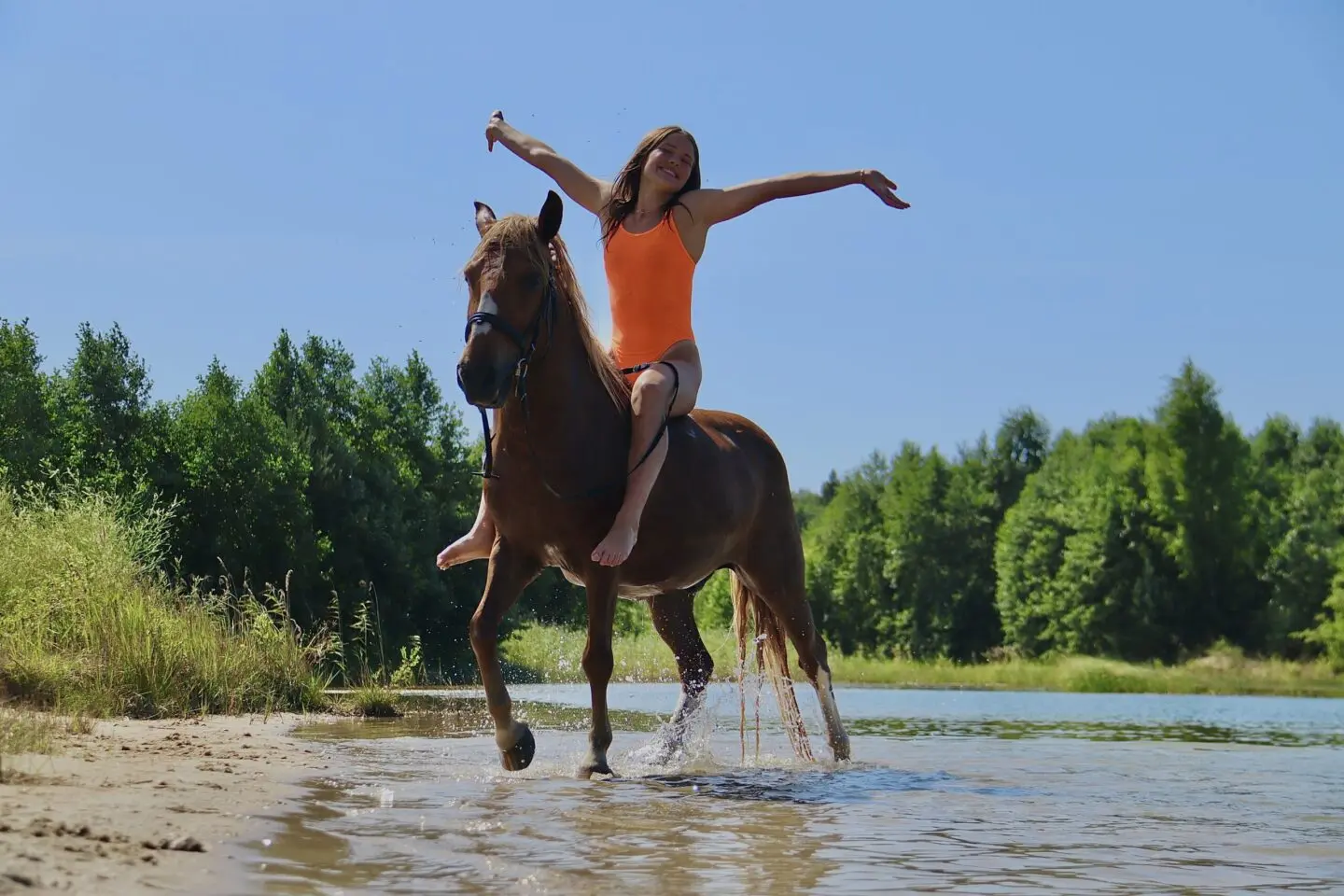
This year, we will be writing more about young swimmers on the ProSwim blog - introducing them through personal stories/interviews and bringing their other hobbies in addition to swimming.
The first of these stories stars the exciting and bright Karolin Victoria Kotsar, who, in addition to swimming, has also spent a long time riding horses.
Karolin, start by telling us where you grew up.
I was born and grew up in Saku, went to kindergarten in Saku and started school at Saku Gymnasium. We lived in a block of flats near the kindergarten and the school. Later we moved to a cottage near Saku with a big garden, lots of animals and a nearby quarry where we could go swimming a lot in the summer.
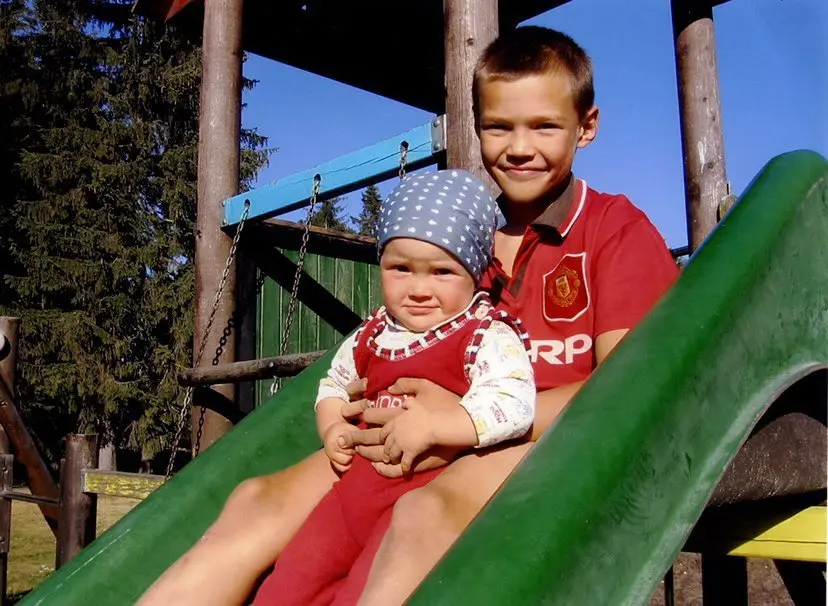
Karolin Victoria with her older brother
You went to Saku Gümnaasium and are now studying in Audentes. How would you describe these schools and their differences?
Saku Gümnaasium is a big school with big classes and lots of students. It was very nice there, because most of the children were kindergarten friends when they went to school. Also, my mother went to school there and many of her teachers were also my teachers. However, when you have a lot of children in a class, the attention span has to be very high and it was still very difficult to combine the school there with the trainings.
Audentes is very good in this respect, with smaller classes, supportive teachers and great schoolmates. At Audentes, there is a very good balance between training and learning, and the students are all very cohesive, because we all share the same goals and aspirations - to go far in sport and to do well in learning.
Which student are you?
I still try to be a very good student. My goal has always been that the grade on the certificate should only be a 4 or a 5, and so far I have always strived for a 5 in all subjects for the year. Education is important to me, and so are grades, because grades are a measure of learning achievement. Just like sport, learning is about setting goals and achievements. I always try to do my best. My favourite subjects are English and Maths, and the hardest subjects are Chemistry and Physics.
Besides swimming, what do you like to do?
One of my favourite activities and ways to recharge my batteries is horse riding. I go riding every free weekend. I've been doing it since I was 7 years old and I really like horses and of course all other animals. I get a lot of positive energy from them. Going horse riding in the countryside, both in summer and now in winter, is so fantastic.
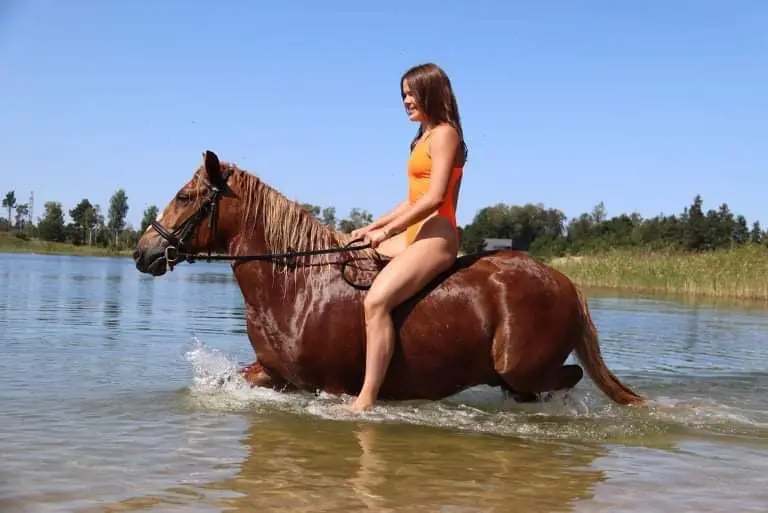
Apart from riding, I also really enjoy triathlon. For the last 4-5 years I have been competing in triathlons, where I have quite often achieved podium places in my age group. Unfortunately, I haven't had much time to participate in these competitions lately, as they often overlap with open water swimming competitions, in which I have been very successful in previous seasons. Last year, I came 1st in both the youth and women's open water championships.
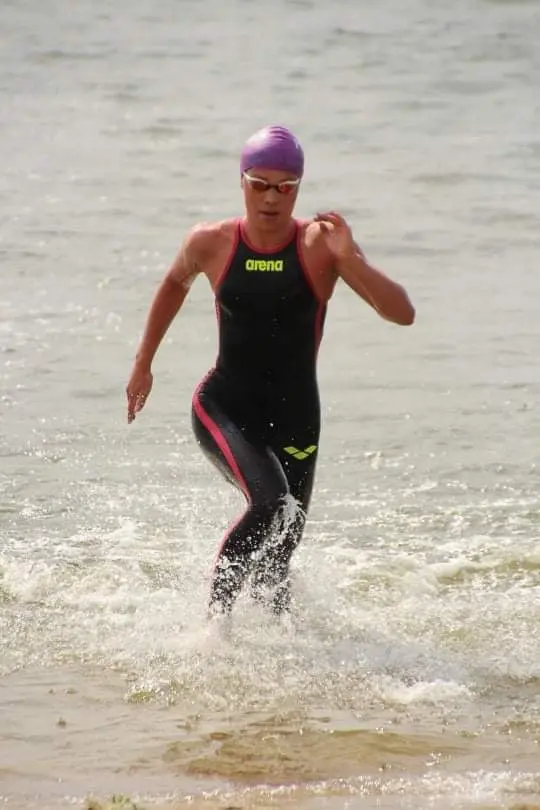
How much travelling have you done?
Thanks to swimming camps and competitions, I have been able to travel, but we haven't had the usual family holidays. However, we have travelled with the family to watch our brother Maik-Kalev's competitions in the USA, Serbia and Germany.
I haven't yet found a favourite destination. I hope to travel more in the future and to find my favourite destination. At the moment, Turkey is most vividly in my mind as the training camps there have always been great.
Who do you see yourself as in the future?
In the near future, I still see myself as a swimmer. I'm aiming to continue my studies as a scholarship holder at a foreign university, where I can also get a higher education while developing my swimming. I don't know yet, but I assume it will still be related to sport.
What is the most important thing in your life?
The most important thing in life is family and shared activities and achievements. As our family has always supported the achievements of all our children, there is always a feeling that these achievements are like our achievements together, whether they are in swimming, basketball or some other activity. Most importantly, of course, is always that do what you love and make the most of it.
Which people give you strength? Where do you find inspiration?
I get strength mainly from family and friends. As I currently spend most of my time at school, at the gym and in the dormitory, and I'm only at home with my family on the weekends, my friends from the gym and school support me on a daily basis. After a hard day at school and training, it's so good to be with friends, just to chat and have a laugh. Laughter and laughter is what gets you through the hard day. Also I am also used to a lot of introspection in my day. and find something good and instructive in every moment to help you move forward.
Let's now move on to swimming. How old were you when you started swimming and how did you get there?
I started swimming very early. My first swimming pictures from Saku Swimming Pool are from when I was 2 months old and I loved the water. According to my parents, I felt like a fish in the water, and I swam very well underwater as a baby. Our family traditionally went swimming together every weekend.
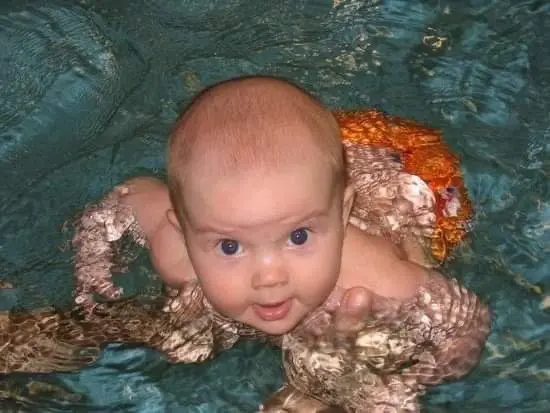
Karolini loved swimming as a baby
I didn't get into swimming until I was 6 years old, through my children's swimming and basketball. I started training in Audentese at the age of 4 in the Mudkids' PE and in the second year I added swimming to this training. After that, I wanted to continue with swimming only. We also had some great children's coaches in Audentes in the beginning. with coaches Natalia Hissamutdinova and Julia Kurbat.who made a big contribution to helping children learn to love water and swimming.
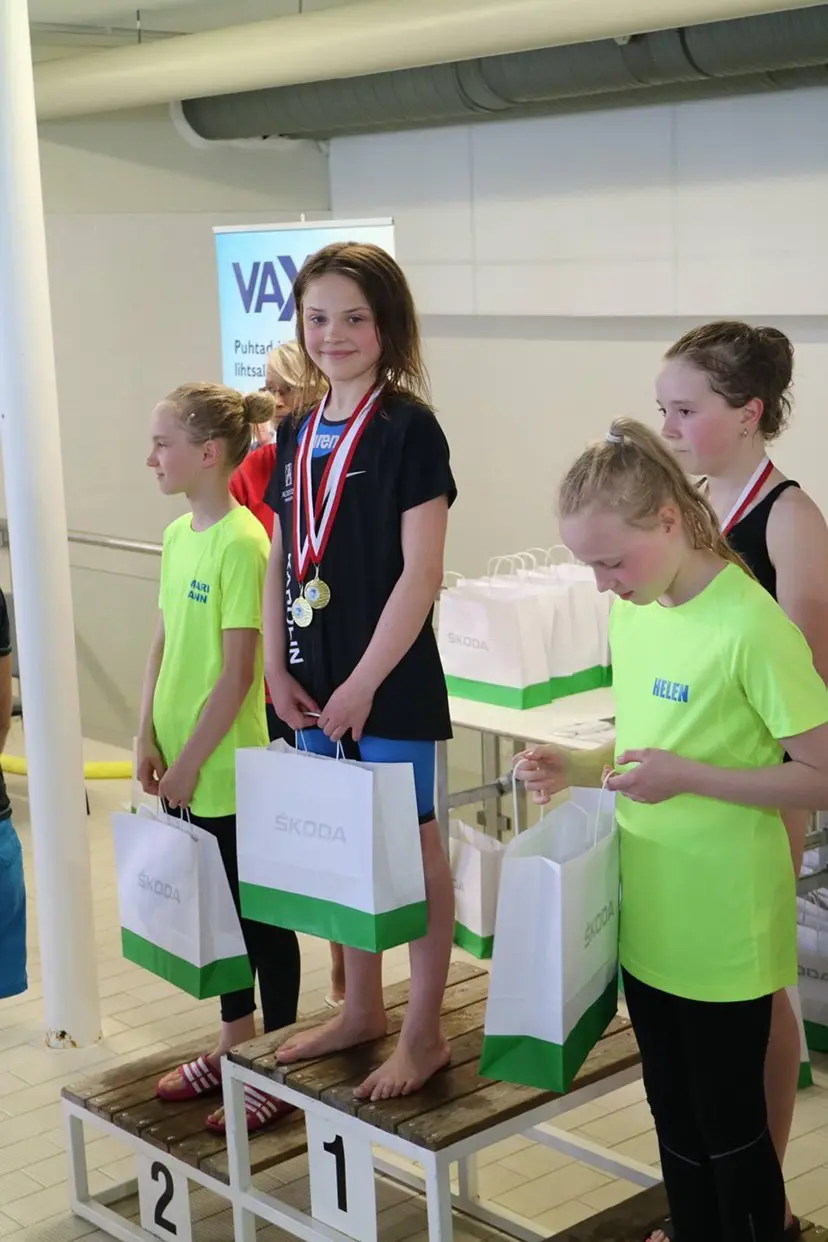
Did you play a lot of sport at home when you were young? Are your parents, siblings sporty?
In our family, sport and joint activities have always been a priority. Our family has always supported each other's sporting achievements and been there to watch them. My father has always been involved in basketball and we have always accompanied him to his competitions. Big brother Maik-Kalev is also a basketball player, and I have been attending his competitions since he was born. My younger brothers, Tristen Matias and Derek Markus, have both played football and basketball, and we always go to their games with the whole family when we can. Younger brother Derek started swimming this year alongside basketball and has already participated in a couple of swimming competitions with some success. Mum has also been quite active in sports in her youth, with volleyball and horse riding being her main favourites.
In general, we all love and respect sport, and when we have free time as a family, we organise family football, basketball or disc golf competitions at home.
Share some funny stories about swimming.
One of the funny things that comes to my mind is about the first triathlon competitions, and the swimming stage in particular. It's quite scary at first to swim in open water from an indoor pool, because the water is generally opaque and you can't really tell which way to swim. Just before the start of the swim, someone on the shore was talking excitedly about how a record-breaking fish, almost the size of a man, had been caught in the same lake a few weeks ago. After hearing this story, I was still terrified to jump in and keep my head under water while swimming. I tried to keep my eyes closed as much as possible at first, but it didn't help my rapid progress. So I had no choice but to push on at full speed. Naturally, as I swam underwater, I imagined every dark shadow, place or plant that I saw, that it must be a big fish that was about to attack me. I think that was really my fastest swim ever.
A very fierce story. Do you sometimes imagine doing something like that now when you're competing to move faster?
Fortunately, you don't get that scary feeling in the pool. The open water and the pool are so different. In the pool, it's more about the right technique and tactics that give you speed 🙂
How long do you want to keep swimming and why?
I would still like to try to swim to the best of my ability and I believe I have a long way to go in my professional career. I still want to participate in as many big events as possible. Presumably I would like to swim all my life.
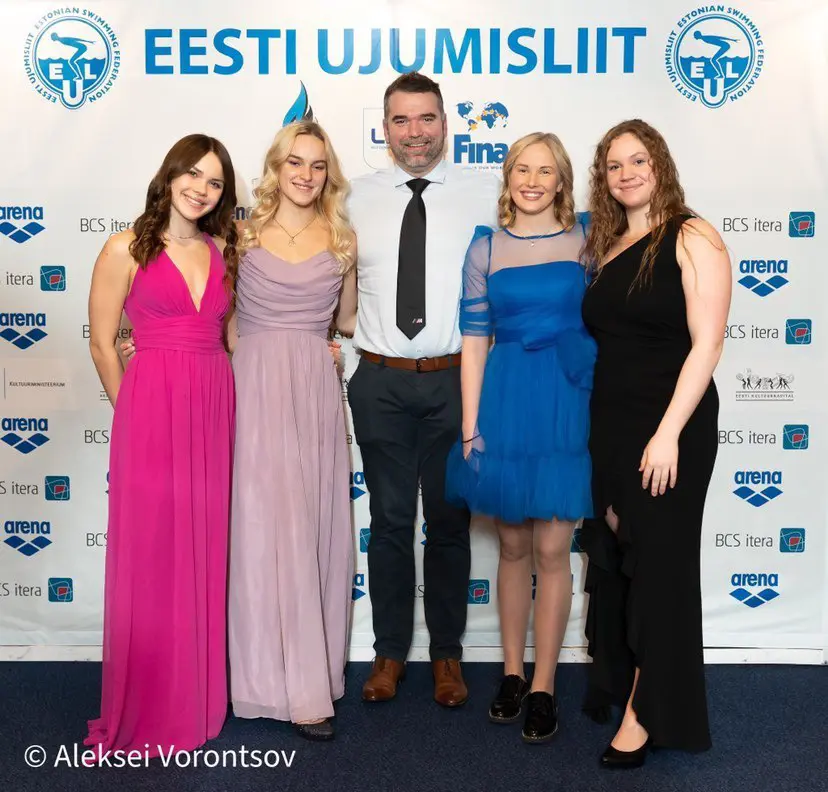
At the end of last year, you won a lot of first places at the Youth and Junior Estonian Championships and were voted the best of the competition. What did that mean to you?
Of course, it means a lot, because you always go to win races and go for those goals, and it's very rewarding and gives you the strength to keep going. At the same time, of course, I understand that medals are not always the most important thing, because... the most important thing is still continuous improvement and competition with yourself and your personal records..
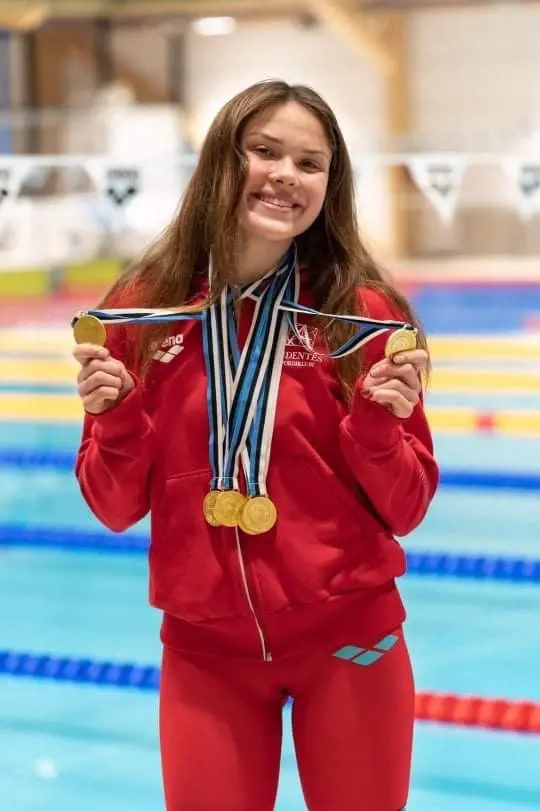
Medal haul for Estonians
What kind of swimmer are you? Do you also swim or do you always do your workouts properly? 🙂
I think I am a very good swimmer. I've always been taught that everything you do, you do for yourself, so I don't think it makes much sense for me to cut corners. If for some reason I really can't do a full workout, I generally tell the coach and try to do more next time.
Who has influenced your swimming career the most and why?
Certainly, my coach was a great contribution to my swimming and the bottom. Mart Mandel, with whom I started to train swimming already consciously in 2015 in the Audentes competition group. We had a very nice group of people with whom we trained, went to many camps and spent a lot of time together in our free time. We had our own swimming family and it was a great support., because we wanted to come to the gym together just to see each other. We all supported and helped each other.
Who are your swimming role models?
Of course, Katie Ledecky, Katinka Hosszu and Sarah Sjöström, the best women's runners in the world at the moment, and Michael Phelps and Caeleb Dressel, the best men's runners, are great role models.